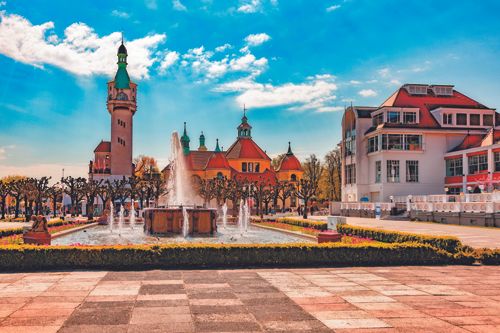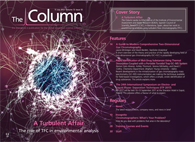The 24th International Symposium on Electro- and Liquid Phase- Separation Techniques (ITP 2017)
ITP 2017 will be held 10–13 September 2017 at the Sheraton Hotel in Sopot, Poland. This preview offers a flavour of what to expect.
Photo Credit: Nightman1965/Shutterstock.com

ITP 2017 will be held 10–13 September 2017 at the Sheraton Hotel in Sopot, Poland. This preview offers a flavour of what to expect.
One of the most recognized international symposium series, the 24th International Symposium on Electro- and Liquid Phase- Separation Techniques (ITP 2017) addresses the latest discoveries, developments, and production in all areas of electro- and liquid phaseâseparation techniques in multiple disciplines.
The organizers are pleased to announce that ITP 2017 will be held in Sopot, Poland, at the Sheraton Hotel, 10–13 September 2017.
The 24th ITP will continue the tradition of the series by updating attendees on the advances in different separation techniques and their applications in various areas with an emphasis on pharmaceutical and environmental analysis.
The dynamic 2017 programme will again highlight a wide range of technologies that use electro- and liquid phase- separations, such as capillary and microchip electrophoresis, electrokinetic chromatography and electrochromatography, two-dimensional electrophoresis, high performance liquid chromatography (HPLC), ultrahighâpressure liquid chromatography (UHPLC), and micro- and nano-scale HPLC.
One of the major aims of the symposium is to provide a forum for highâlevel scientific exchange between analytically oriented scientists from the whole world in a friendly atmosphere. Sopot, with its special atmosphere, can offer excellent opportunities for scientific, cultural, and social experiences in a unique seaside setting.
ITP 2017 will also be running three stimulating and highly informative workshops by recognized experts in their field, which will be run in parallel on Sunday 10 September from 9:00 to 13:00. These workshops include:
Workshop 1: Fundamentals of Sample Preparation and Recent Developments in Microextraction Technologies – Where “Big” Fails “Small” Can Do More-Barbara Bojko, Nicolaus Copernicus University, Poland, and Janusz Pawliszyn, University of Waterloo, Canada;
Workshop 2: Challenges in Analytical Development: The Need in Orthogonal Chromatographic Methods for a Small Molecule Project in Innovative Drug Development-Vladimir Ioffe, Teva Pharmaceutical Industries, Ltd., Israel;
Workshop 3: Principles and Applications of Modern CE-MS-G.W. Somsen, Vrije Universiteit Amsterdam, The Netherlands.
Furthermore, participants are invited to submit manuscripts based on presentations at the ITP 2017 meeting for possible publication in the Journal of Chromatography A, with the intention of publishing a virtual special issue (VSI) dedicated to the meeting. This will eliminate possible delays in publication for contributors to the special issue, making the conference special issue more complete and accessible than it has ever been.
Additionally, this year ITP 2017 will be held in parallel with the 11th Polish Conference on Chromatography, the national meeting organized every 3 years.
Oral and poster presentations will be organized during the conference and the organizers encourage interested presenters to submit their abstracts as soon as possible.
More details on the topics, invited speakers, registration, abstract submission, conference fees, and important dates can be found on the conference website.
The organizers look forward to seeing you in Sopot!

Prof. MichaÅ Markuszewski
Chairman
E-mail: symposium@itp2017.com
Website: www.itp2017.com

Regulatory Deadlines and Supply Chain Challenges Take Center Stage in Nitrosamine Discussion
April 10th 2025During an LCGC International peer exchange, Aloka Srinivasan, Mayank Bhanti, and Amber Burch discussed the regulatory deadlines and supply chain challenges that come with nitrosamine analysis.












